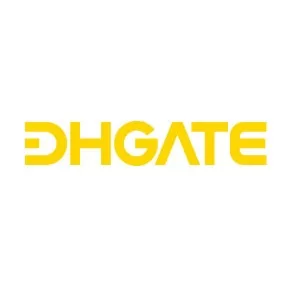Finance
UK small businesses and charities at risk from technology ‘blind spot’

- UK economy growth prospects could be affected by SMEs’ slow take up of digital technology as Lloyds Bank unveils UK’s first Business Digital Index.
- The Index tracks the skills of SMEs and Charities and their annual adoption of digital technology.
- Research shows that three-quarters of small businesses and charities are not investing in improving digital skills and only half of small businesses and charities have a website.
- A third of business and charities believe that being online is not relevant to them – showing an urgent need for education on the benefits of going online
Thousands of UK businesses and charities could be jeopardising their future growth prospects because they do not see the benefits of digital technology and are not doing enough to develop their digital skills, according to the new UK Business Digital Index published today by Lloyds Bank, in association with Accenture and Go ON UK.
According to the findings, only half of UK businesses and charities (50%) have a website; and over one in ten (11%) do not have access to or use the internet. Even among organisations with a website, most are not reaching their full potential – only one in five (18%) allow customers to purchase goods/services or donate from their site and only a fraction (4%) can take payments in different currencies online, which limits their ability to export to other markets.
As part of its commitment as a founder partner of Go ON UK – a cross-sector charity aiming to make the UK the most digitally skilled nation – Lloyds Bank has designed the first UKBusiness Digital Index. The Index tracks the use of digital technology among businesses and charities, including their use of social media; online sales; adoption of online security measures; use of digital advertising; and level of basic online skills based on consumer surveys and analysis.
The Index – which will be published annually – clearly demonstrates that most businesses and charities still do not use digital technology to its full potential, yet worryingly they tend to believe that there is no more room for improvement.
More than a third of all the organisations surveyed (35%) said they believe they are already doing all they can online, while less than a third (29%) of respondents said being online wasn’t relevant to them – showing a strong need for education on the benefits of being more digitally able.
Nearly three-quarters (74%) of SMEs and charities who see further digital development as ‘irrelevant’ are smaller organisations of five employees or less.
Who are the digital laggards and leaders?
The Index gives a ‘benchmark’ score to show the extent of digital skills for SMEs and charities of different sizes, sectors and regions across the UK. Where 100 is the average, anything above means that the enterprise is more digitally able – in other words they engage in more digital activities from being active on social media to using internet banking. A score below 100 means that the organisation is less developed in their digital capability and may rely more on traditional ways to communicate with customers and carry out financial transactions.
Failure to take up digital technology is unsurprisingly most prevalent amongst more established organisations, with those more than ten years old scoring an Index rating of 93, compared to a rating of 109 for new start ups (under one year old). This pattern could be because younger organisations find it easier to update the technology they use or outsource it.
The Index also highlights striking differences between the approaches taken in different sectors. Administrative and support services (129), education (124), and the arts (121) have the highest ratings, while those in the charity sector (59) are the lowest scoring. It also found that a quarter (25%) of organisations who believe that being online is not relevant to them were charities.
This can also be seen in the level of Basic Online Skills (as defined by Go ON UK); where more than two thirds (67%) of small businesses and charities are able to find things online, compared to nearly two fifths (39%) of charities.
The story for Basic Online Skills also changes regionally with a quarter (25%) of businesses and charities in London not having Basic Online Skills compared to the highest in the country of almost two fifths (38%) in the North West not having Basic Online Skills.
Barriers to adopting digital technology
Other reasons organisations give for not doing more to develop their digital skills include:
- Not having the time (14%)
- Absence of relevant skills (11%)
- Lack of interest in doing so (10%)
- Belief that digital is not worth the investment (7%)
- Security concerns (5%)
Business benefits
Among those organisations that have adopted digital technology and an online presence, there are clear benefits reported. Almost two fifths (37%) of SME’s and charities believe that wider geographic coverage is the main benefit of being online. Time saving and effective marketing are also prominent benefits.
The Business Digital Index also shows a correlation between the adoption of digital technology and businesses’ likelihood to be optimistic about their own prospects and the health of the UK economy. More than two fifths (41%) of the most digitally mature SME’s and charities rate themselves as confident on the prospects for the UK Economy, against more than a third (34%) overall.
Miguel-Ángel Rodríguez-Sola, Group Director for Digital, Marketing & Customer Development at Lloyds Banking Group said: “Most businesses do use digital technology in some shape or form. However there is a real blind spot for many firms who are doing the basics but can’t see the benefits of doing more.
“Businesses that are willing to invest for the long term could reap huge rewards from digital technology. Some of the benefits are quick wins, but businesses that really do focus on making digital technology a priority may even find that they can capitalise more easily on growth opportunities and that their confidence continues to rise.”
“As a founder partner of Go ON UK we are always looking to improve the digital services we offer to our own customers, helping them better manage their businesses and lives. We want our customers and the community to share in the benefits of the internet and ultimately create prosperity for the UK.”
Commenting on the report, Baroness Lane-Fox, Chair of GO ON UK said: “The UK is one of the world’s strongest internet economies – accounting for over 8% of GDP and forecast to rise to over 12% by 2016. We are world leaders in e-commerce, yet this report shows that the transformative power of digital is not being fully exploited by SMEs and charities in the UK and the main barrier is about perceived benefits of digital.
“Go ON UK is focused on closing the digital skills gap. We want to make sure everyone – individuals, businesses, charities – can get connected and make the web work for them. We are at an early stage of the web’s development and the pace of change will only increase. We need to up-skill our small businesses now if they are to reap the benefits in the future.”
Gareth Wilson, a managing director in Accenture’s Financial Services practice, United Kingdom and Ireland said: “No matter where a business or charity is located, its size, or whether it’s a new start-up or a more established organisation, the use of digital technology can help them work more effectively and efficiently.
“However, this report suggests too few are taking advantage of the opportunities that are out there, from things as simple as, basic internet access or online payments through, to more sophisticated digital security settings. This is not necessarily from a lack of IT skills or issues with connectivity, but often due to insufficient awareness of the real and tangible benefits that charities, small businesses and their customers could experience.”
Source: http://www.lloydsbankinggroup.com/




















































